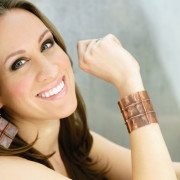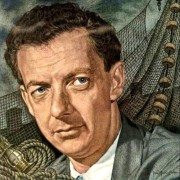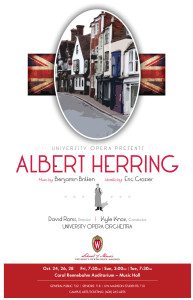From October 9 to 11, the UW-Madison School of Music will present its second brass music festival, following a spirited event last year that was enthusiastically received by students and the community.
This year, “Brass Fest II” has added a vocalist to the mix: a Norwegian singer who mixes jazz tunes with pop and folk music from the Middle East, Bulgaria, Spain and India. The three-day festival will also features two brass quintets and a solo trumpeter.
[Best_Wordpress_Gallery id=”1″ gal_title=”Brass”]
The festivals showcase the energetic, eclectic world of brass music, says festival organizer John Aley, professor of trumpet at UW-Madison and principal trumpeter of the Madison Symphony Orchestra. “We benefited from creative energy last year that continues to impact positively in the School of Music,” says Aley. “The performances will showcase some amazing talent and innovation including the surprising and delightful synergy of brass plus voice.”
On the docket this year:
Friday, October 9: Axiom Brass Quintet, 8 PM, Mills Hall. This lively Chicago quintet features repertoire ranging from jazz and Latin music to string quartet transcriptions, as well as original compositions for brass quintet. Friday’s concert will offer an Elizabethan suite, “The Art of the Fugue” by J.S. Bach, and brass quintet works by Victor Ewald, David Sampson, and Patrice Caratini.
Axiom Brass is an Ensemble-in-Residence at the Boston University Tanglewood Institute and at Chicago’s Rush Hour Concerts. They are winners of the Chamber Music Yellow Springs Competition (2012), the Preis der Europa-Stadt Passau in Germany (2012), the 2008 International Chamber Brass Competition and prize-winners of the 2010 Fischoff Chamber Music Competition, the Plowman Chamber Music Competition, and the Jeju City International Brass Quintet Competition in South Korea. Axiom Brass is comprised of Dorival Puccini, Jr., trumpet; Jacob DiEdwardo, horn; Kevin Harrison, tuba; Serdar Cizmeci, trombone; and Kris Hammond, trumpet.
Saturday, October 10: Festival Brass Choir with the Axiom Brass Quintet, the Wisconsin Brass Quintet, trumpeter Adam Rapa, vocalist Elisabeth Vik, and students/faculty of the School of Music. 8 PM, Mills Hall. Conducted by Scott Teeple, professor of music and wind ensemble conductor. The concert will include works by Astor Piazzolla, James M. Stephenson, Anthony DiLorenzo, Nicolai Rimsky-Korsakov, and a Bulgarian vocal work sung by Ms. Vik.
The Norwegian-born vocalist Elisabeth Vik was classically trained by Norwegian opera singer Rolf Nykmark, then moved on to study commercial music and music business at the Liverpool Institute for Performing Arts in England. She received a bachelors degree in pop-music performance, then moved to New York City. She has traveled the world gathering and learning techniques and musical expressions, giving her sound and stylings hints of Indian, Arabic, Spanish, Bulgarian as well as Norwegian flavors, superimposed upon a classical technique and an affinity for jazz.
American Adam Rapa is a dynamic performer, composer, producer and educator known for the excitement, energy and enthusiasm he brings to stages and classrooms around the world. Rapa has been featured as a special guest artist and clinician at trumpet conferences around the globe including the International Trumpet Guild conference, the National Trumpet Competition, and festivals in dozens of countries around the world. Adam performed and/or recorded with Grammy Award winners Nicholas Payton and Roy Hargrove, Christian McBride, Doc Severinsen, Soulive, Wycliffe Gordon, Eric Reed, Jason Moran, Robert Glasper, Cyrus Chestnut, Jorge Pardo, Mnozil Brass, Belgian Brass, Alice in Chains, Academy Award winning film composer A.R. Rahman, and many others. Now living and freelancing in Copenhagen, Rapa plays lead trumpet in the Danish Radio Big Band and also performs with members of the Afro-Cuban All-Stars.
The Wisconsin Brass Quintet, formed in 1972, is a faculty ensemble in residence at the UW-Madison. In addition to performing with the WBQ, the players have also been members of the American Brass Quintet, Empire Brass Quintet and Meridian Arts Ensemble. Current members include Tom Curry, tuba; Mark Hetzler, trombone; Daniel Grabois, horn; John Aley, trumpet; and Matthew Onstad, trumpet.
Sunday, October 11: Duo recital with trumpet soloist Adam Rapa, vocalist Elisabeth Vik, and musicians from the School of Music. 7:30 PM, Mills Hall. Based in Denmark, the duo offers a creative blend of classical and jazz, melding traditional and modern repertoire with a Latin sizzle. Works will include the Carmen Suite by George Bizet, Så Skimrande Var Aldrig Havet by Evert Taube, arranged by Rapa & Vik, Oblivion by Astor Piazzolla arranged by Rapa, and Anitras Dance by Edvard Grieg, arranged by Vik & Rapa.
Tickets for the Friday and Saturday concerts are $15 for adults, free for students and children. Sunday’s concert is free to all.
Buy tickets to both concerts and save!





